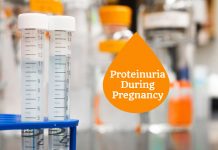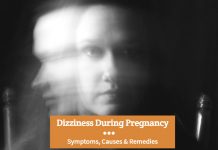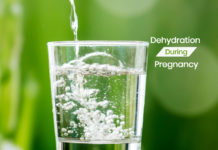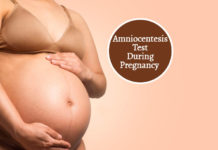What is bacterial vaginosis?
Bacterial vaginosis during pregnancy is the condition of having an outbreak of harmful bacteria in the vagina area.
10-30% of pregnant women have Bacterial Vaginosis (BV). Woman having a previous bacterial vaginosis infection are more prone to bacterial vaginosis during pregnancy.
Certain ethnic groups are also at higher risk of BV during pregnancy. One in every five pregnant women has bacterial vaginosis.
What causes bacterial vaginosis during pregnancy?
Bacterial Vaginosis (BV) during pregnancy occurs due to the imbalance of good and bad bacteria in the vagina.
Vagina has a lot of good bacteria. They are of the same family as the ones found in the curd. Lactobacillus and yeast are present in the vagina. When their number fluctuates the harmful infectious bacteria increase in number. Lactobacillus maintains an acidic pH in the vagina.
This acidic pH prevents the vagina from getting infections. Unhygienic practices may kill Lactobacillus in the vagina.
So the pH of vagina shifts to the alkaline side leading to an increase of harmful bacteria and onset of Bacterial vaginosis during pregnancy.
One reason for BV during pregnancy is the excessive amount of moisture present near the vagina.
During early pregnancy vaginal discharge increases and makes you feel wet. This favors the growth of harmful bacteria causing bacterial vaginosis during pregnancy.
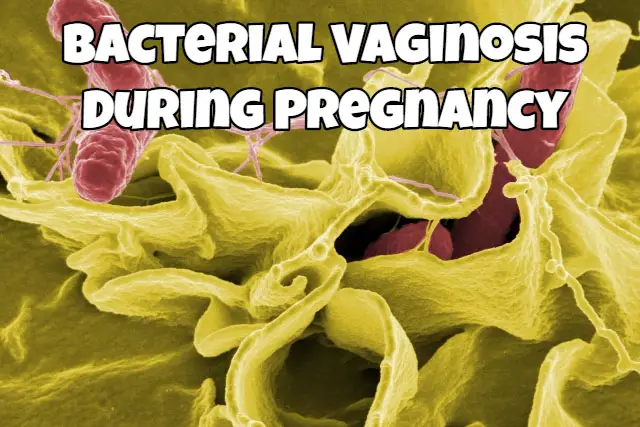
5 causes of bacterial vaginosis during pregnancy
- Douching: Douching at any stage can cause bacterial vaginosis. What is douching? Douching is the use of moist swabs with vinegar or other liquids to dab vagina. It is an unhealthy practice. One must never practice vaginal douching. Douching is the primary cause of bacterial vaginosis during pregnancy.
- Unprotected sex: Unprotected sex with your partner during pregnancy can cause bacterial vaginosis. The change in pH due to semen can favor the growth of dangerous bacteria. Bacterial vaginosis during pregnancy happens because of unprotected sex. Using a condom is the only way to prevent bacterial vaginosis during pregnancy due to unprotected sex.
- Vaginal medications: Some vaginal medications alter the pH of the vagina. One should never take these medicines without a doctor’s prescription. Also whenever taking such vaginal medications, one must take probiotic yogurt along.
- Having sex with multiple partners: Having sex with multiple partners exposes you to different kinds of bacteria from their bodies. Having sex with an unknown person while pregnant can cause bacterial vaginosis.
- Not maintaining hygiene of vaginal area: Not washing the vagina during bathing or using a tampon for too long is unhygienic. It can cause bacterial vaginosis during pregnancy. In fact, it is most likely to get bacterial vaginosis during pregnancy if your vagina is unkempt.
Bacterial Vaginosis Symptoms
About 50-70% of the woman having bacterial vaginosis during pregnancy don’t experience any symptoms.
It is only when they have sex, the fishy odor makes them worry about bacterial vaginosis. There are no distinct symptoms of bacterial vaginosis during pregnancy.
Top 5 bacterial vaginosis symptoms during pregnancy are:
- Gray whitish discharge: Unlike yeast infection, you will not exude the thick cheesy discharge. If you have bacterial vaginosis, your vaginal discharge will be grayish white. The discharge has a fishy smell. The smell of discharge during pregnancy bacterial vaginosis heightens when you have sex.
- Fishy smell: The vagina always has a fishy smell. Irrespective whether your vagina is dry or not it will have an unpleasant stinking odor. This fishy smell of bacterial vaginosis during pregnancy is because of the change in pH. This smell will also come from your panty and other intimate wear. The fishy smell becomes unbearable after having sex with bacterial vaginosis during pregnancy.
- Burning sensation while urinating: If you feel a burning sensation when you wee it may be pregnancy bacterial vaginosis. Bacterial vaginosis during pregnancy causes scaling of the skin. Thus, you feel a burning sensation in the vagina while peeing. Pain while urinating is a common sign of bacterial vaginosis during pregnancy.
- Irritation in vagina: Itching and irritation in the vagina is a sign of bacterial vaginosis during pregnancy. Irritation of the vagina is also a cause of bacterial vaginosis during pregnancy. If you wear too tight undergarments, the lining of the vagina gets irritated triggering bacterial vaginosis during pregnancy.
- Bacterial vaginosis spotting: Bacterial vaginosis spotting is due to the tearing of vaginal walls. BV during pregnancy can spread to the uterus and causes tearing of membranes. It can result in vaginal bleeding and passing of vaginal tissue. Spotting is the most important symptom of BV during pregnancy.
Bacterial vaginosis during pregnancy first trimester
Bacterial vaginosis during the first trimester is because you produce a lot of cervical mucus during that time. This provides nutrients to harmful bacteria.
BV during pregnancy first trimester is not a reason for the miscarriage. Bacterial vaginosis and risk of miscarriage are not relatable in the first trimester.
Miscarriages in the first trimester may be because of chromosome abnormalities or physical injuries.
Bacterial vaginosis during pregnancy second trimester
Bacterial vaginosis in pregnant woman in the second trimester puts her to risk of miscarriage.
BV during pregnancy causes second-trimester miscarriages. There is a relation between second trimester and bacterial vaginosis.
The second trimester is the time most women get bacterial vaginosis.
Bacterial vaginosis during pregnancy third trimester
Bacterial vaginosis during last trimester is risky. It can cause premature labor and infections in the vagina.
BV during pregnancy third trimester needs immediate medical attention.
During the third trimester of pregnancy, water leak occurs. When the water breaks, the membranes begin rupturing. It can lead to bacterial vaginosis spreading to other places.
BV during third pregnancy trimester can even cause premature rupture of membranes.
Bacterial Vaginosis and bleeding during pregnancy
Bacterial vaginosis and bleeding during pregnancy is a sign that the infection has got worse and needs treatment.
Bleeding intensity will determine the severity of bacterial vaginosis during pregnancy.
Bacterial vaginosis and yeast infection during pregnancy
Bacterial vaginosis and yeast infection are two different diseases.
Yeast infection is candidiasis. It is because of yeast outgrowing the LAB bacteria in your vagina. Yeast is a fungus and needs a different kind of conditions to grow. Cheesy yellow discharge is a sign of yeast infection during pregnancy.
BV and yeast infection during pregnancy need different treatments. Bacterial vaginosis during pregnancy has no such symptoms.
BV and yeast infection are two different things and do not correlate.
Bacterial vaginosis and miscarriage
It is a popular notion that bacterial vaginosis during pregnancy can lead to miscarriage. Such is not the case always.
Miscarriage in the first trimester is because of chromosomal abnormalities. BV in the first trimester doesn’t cause miscarriages.
Though, second-trimester miscarriage due to bacterial vaginosis is possible.
Second-trimester miscarriage and bacterial vaginosis have a relation.
Studies show that there are incidences of miscarriage in women who have BV during the second trimester.
Other pregnancy complications such as low birth and preterm delivery also have been reported.
BV during the last trimester is risky as it can cause premature labor and infections in the vagina.
Will my bacterial vaginosis affect my baby?
Until the water breaks, the baby is inside the placenta, and mucus plug seals the cervix. There is least chance that the BV infection travels to the baby before that.
Though, BV during labor and delivery can affect the baby adversely. In fact, BV during the third trimester can cause pregnancy complication like preterm births.
Bacterial Vaginosis pregnancy spotting
BV during pregnancy can cause bleeding if it irritates the vaginal walls. Upon irritation of the vagina, there can be mild bleeding.
This can cause BV pregnancy spotting. The vagina walls become scaly and can wear off due to BV during pregnancy.
Spotting during pregnancy is also common otherwise. So it may be that spotting is not due to bacterial vaginosis.
BV during labor and delivery
BV during labor can cause premature birth and low birth weight. Bacterial Vaginosis untreated during pregnancy may not be as harmful in the first two trimesters.
BV left untreated during pregnancy during the third trimester can cause serious complications.
BV during labor and delivery can spread to the baby.
A neonate has almost no immunity against such infections. It can lead to dermatitis and create skin and other problems for the baby.
U. S. Centre for Disease Control and Prevention (CDC) doesn’t recommend leaving BV untreated during pregnancy.
Bacterial vaginosis during pregnancy tests and screening
Doctors do various tests to identify whether you have bacterial vaginosis during pregnancy.
It is important not to have sex or douche or take any medicines 24 hours before bacterial vaginosis during pregnancy test.
BV tests are not invasive. Your doctor will make you raise your legs and insert a tool in your vagina. The doctor will take a sample of fluid from the vagina. You might feel discomfort. But it is crucial to take BV test for the safety of your baby.
- Wet mount: A wet mount is a test where the doctor takes a sample of your vaginal fluids and observes it for detecting bacterial vaginosis during pregnancy. White blood cells also recognize BV during pregnancy. If there are many bacterial cells, then it means that you are suffering from BV.
- KOH Slide: Another test for bacterial vaginosis during pregnancy is the KOH slide. In this test, your doctor will use an alkali to diagnose bacterial vaginosis during pregnancy.
- pH test: As already discussed bacteria need an alkaline pH to grow. A pH test for bacterial vaginosis during pregnancy will detect the change in pH. A pH more than 4.5 shows that you have bacterial vaginosis during pregnancy.
- Whiff test: Whiff test for bacterial vaginosis during pregnancy is the detection of fishy odor in vaginal discharge. A particular chemical enhances the fishy smell of vaginal discharge if present.
- Pelvic exam: BV tests also include a pelvic examination. Just like PAP test BV test also feels the same.
- Discharge test: If you don’t feel like getting an examination, you can give your collected vaginal discharge for BV during pregnancy test.
- Oligonucleotide probe: In rare cases, a sample for vaginal discharge is tested for the presence of bacterial DNA. It is an expensive BV test.
Bacterial vaginosis pregnancy complication
- Preterm labor
- Low birth weight
- Rupture of membrane
- Miscarriage
- Having an infection of the uterus after birth
- Pelvic inflammatory disease
- Scars and block tubes
- Ectopic pregnancy
Bacterial vaginosis treatment during pregnancy
- Clindamycin and Metronidazole: Oral administration of Clindamycin 300mg and Metronidazole 500mg treats BV during pregnancy. Topical Clindamycin dose is around 5g for treating bacterial vaginosis during pregnancy.
- Gel or tablet in vagina: Doctors give gel or tablets for inserting in the vagina for treatment of BV during pregnancy. Bacterial vaginosis treatment during pregnancy is mostly based on the restoration of pH of the vagina.
- Vaginal pH correction treatment: This brings us to the next cure for BV during pregnancy. Vaginal washes and pH neutral soaps help correct the altered pH of the vagina. It is the most efficient way of treating BV during pregnancy. No antibiotics or other medications are a part of this treatment. It is almost a natural cure of Bv during pregnancy.
- Suppositories and Sulfa crèmes: Suppositories and Sulfa crèmes treat BV. Suppositories placed inside the vagina help reduce the bacterial growth.
- Tinidazole (not recommended): An antibiotic called Tinidazole is not advised for pregnant mothers to treat BV during pregnancy.
What is the best way to treat bacterial vaginosis during pregnancy?
Bv treatment during pregnancy is not restricted to allopathic drugs.
Natural home remedies are useful in treating BV during pregnancy. Some women experience no symptoms during BV. Bacterial vaginosis pregnancy itself heals.
Natural treatment act as support therapies for BV while pregnant.
Home Remedies For Bacterial vaginosis
- Apple cider vinegar: Apple cider vinegar has the right pH which is suitable for vaginal pH correction. Adding apple cider vinegar to bathtub water or using it as a dab helps heal bacterial vaginosis during pregnancy. It is the best home remedy for BV during pregnancy.
- Eat yogurt: Yogurt and curd have the good bacteria in abundance. Eating curd and curd products helps flourish the good bacteria in the vagina. Eating yogurt is a natural way to prevent BV.
- Apply garlic: Garlic has many enzymes and chemicals that are toxic to bad bacteria. Applying garlic paste on affected areas is another way to treat BV at home. Garlic can cause irritation and burning sensation. Decide this home remedy for BV considering your skin sensitivity.
- Tea tree oil: Tea tree oil is also a natural cure for bacterial vaginosis during pregnancy. Applying tea tree oil to your vagina can kill the bacteria and correct the pH.
- Cranberry juice: Drinking cranberry juice is beneficial for your pregnancy. And it can prevent BV. If you have bacterial vaginosis during pregnancy then regularly drink cranberry juice. They are rich in vitamin C and thus help boost your immunity.
- Wash undergarments in hot water: Sometimes BV relapses because the clothes you wear are not free of dangerous bacteria. It is best to wash clothes with a strong detergent and bleach them if you have any such infection. Maintaining hygiene is a part of cure of BV.
- Avoid very tight undergarments: Women who wear tight clothing are at risk of bacterial vaginosis during pregnancy. It is because the bad bacteria are anaerobic. They prefer a low oxygen environment. Wearing too tight clothes hampers air circulation to the vagina.
- Tea bags: Applying cooled tea bags will alleviate the symptoms of BV. Also, the antioxidants present in tea will treat bacterial vaginosis during pregnancy.
How to prevent bacterial vaginosis
- Condom: Wearing a condom while having sex protects you from hundreds of diseases. A condom is the only contraceptive that protects you from STDs. You can prevent getting bacterial vaginosis during pregnancy by wearing a condom.
- Unscented pH neutral soap: Use unscented pH neutral soaps for vagina and intimate hygiene. It will prevent altering of pH of the vagina and prevent bacterial vaginosis during pregnancy.
- No douching: Douching is the worst of practices. Douching is formidable even when you are not pregnant. Do not douche with anything even with vinegar. Avoiding douching will keep BV at bay.
- Quit smoking: Smoking can alter the pH of your vagina. Smoking creates an imbalance of good and bad bacteria in your vagina. Quit smoking to prevent bacterial vaginosis. Smoking has much other harm to your pregnancy.
- Vitamin D supplements: Though not proven but Vitamin D deficiency can cause bacterial vaginosis during pregnancy. Taking enough Vitamin D during pregnancy will help avoid and prevent BV.
- Always wipe from front to back and bath daily
- Avoid using public washrooms very frequently
- Do not have sex with unknown partners during pregnancy
- Get regular checkups and cervical examinations
- Avoid using sex toys and other possible carriers of bacteria
BV during pregnancy is very common but not a casual thing. One must try her best to avoid getting BV during pregnancy.


